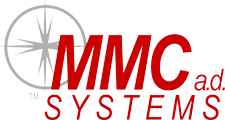Leadership Coaching
In the past 5+ years we’ve expanded our practice to include coaching of senior management individuals from both non-profit organizations and for-profit companies of all sizes around the world. We have worked with C-level and first/second level line management. While working one-on-one with these individuals we have helped them with:
-
- Identifying their desired career path
- Setting a vision and agenda for their organization
- Setting organization and group goals (financial, product and/or impact) with potential methods for achieving them
- Motivating their staff to work better together as a high performance team
- Growing and managing their staff; and finally
- Becoming a better and more effective leader.
We have worked with individuals from marketing, sales, operations, engineering, customer service and finance.
Our goal is to make our clients better, stronger leaders of their organizations and to help them make their organizations more successful. There are many different types of leaders and leadership styles including autocratic, democratic, laissez-faire and transformational. There are also different company cultures including purpose-driven, results-oriented, authoritarian, structured and methodical and safe and risk-conscious to name a few.
We adapt our coaching methods and style to the individual and the company/organization culture. We consider a healthy work-family life balance for each person we work with. We identify areas for personal and professional growth and potential paths that can help achieve career objectives. If we don’t think we can help you, we will try and recommend another third party to work with you.
What is Coaching
Coaching involves meeting with a client one or more times a month in 45 minute to one hour in-person or virtual video sessions. An engagement lasts a minimum of six (6) months and can be automatically extended in six (6) month increments. The initial session(s) focus on learning what you want to achieve in your job and life over what period of time. Following these initial session(s) the focus ia on identifying your strengths and weaknesses and how your are functioning in your environment. Occasionally homework is assigned to learn and/or practice a new skill.
What Coaching is NOT
A coach does not:
- Solve specific problems or issues for you
- Work directly with your staff
- In non-profits, assist with fund raising or making introduction to funding sources
Coaching is different from mentoring, advising and consulting. A mentor is typically a more senior, experienced person than the person they are working with and serves as a role model for that person. An advisor will provides recommendations to specific problems. A consultant, in addition to providing advice like an advisor, they will also perform the actual work that they recommended. Coaching is focussed on you, the individual, while the others are focussed on the job that you are responsible for.
What is a Successful Coaching Engagement
A successful coaching engagement is one where the coach and you, the coachee, are happy, and your leadership capacity has increased. It requires collaboration between you and the coach and the building of a relationship based on trust.
What is Leadership Capacity?
Leadership capacity is your ability to change the way in which you lead so as to be more effective in achieving personal and team results. To be a good leader, you need to have a solid understanding of who you are, the work that you are doing and the people that you manage and work with.
To increase your leadership capacity, you will need to increase the knowledge of yourself (strengths, weaknesses, things that you like and don’t like to do, and how you manage yourself and staff on a day-to-day basis). You will need to analyze your weaknesses, and if appropriate, develop and execute plans to self-improve. You will need to hold yourself accountable, so you mitigate those weaknesses over time. Building your leadership capacity is an ongoing activity, and not just a one time self-improvement project. Change can be difficult, time consuming, frustrating and usually will not happen overnight.
Your coach can be instrumental in this process. To learn more about leadership capacity, here is an article by Daniel Muzquiz. Remember that every self-improvement plan/project must be adapted to each individual to insure success with self-improvement. The is very true in sports when learning a new skill and it also applies to business.
Measuring Success
Should you measure success? Do we measure success in our coaching assignments? What are some of the more important metrics?
You should measure success. You may be working with the wrong coach (wrong background, not the right experience, can’t really relate to them, …). You need to identify short (3 – 6 month), mid-term (6+ months), and long term (3 – 5 years) goals. Discuss them with your coach so that you are both aligned in your engagement.
We measure success too. The easiest metric is whether you want to continue working with us. Other metrics include whether you achieved your short and mid-term goals that your coach agreed with. Leadership coaching is an evolving personal process.
We are also concerned with your happiness. Are you happy with work? Are you happy with your family life. Everything is interconnected. Being unhappy with one, can lead to unhappiness with the other.
Finally, have we helped you increase your leadership capacity?
Share this:

Recent Comments